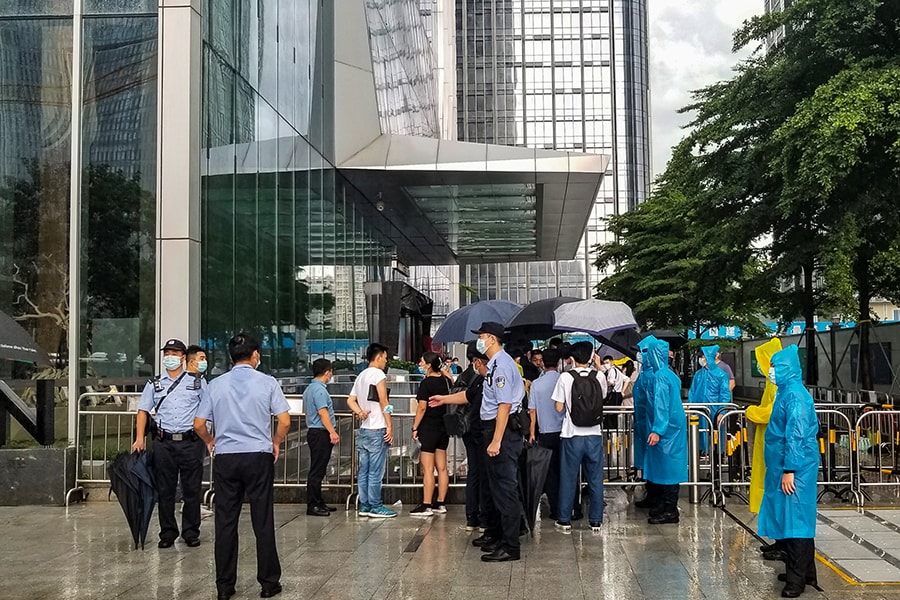
How China plans to avert an Evergrande financial crisis
Last week, a deadline to make an $83 million payment to foreign investors came and went with no indication that Evergrande had met its obligations, raising questions about what would happen if its huge debt load went sour
 Police officers and security guards stand in front of the barricaded entrance to the China Evergrande Group headquarters in Shenzhen, China. Evergrande is facing mounting protests by homebuyers, retail investors and even its own employees, raising the stakes for authorities in Beijing as they try to prevent the property giants debt crisis from sparking social unrest. Source: Bloomberg/ Contributor/Getty Images
Police officers and security guards stand in front of the barricaded entrance to the China Evergrande Group headquarters in Shenzhen, China. Evergrande is facing mounting protests by homebuyers, retail investors and even its own employees, raising the stakes for authorities in Beijing as they try to prevent the property giants debt crisis from sparking social unrest. Source: Bloomberg/ Contributor/Getty Images
BEIJING — In any other country, the sudden collapse of a corporate titan with more than $300 billion in debt would send shock waves across the economy. Headlines would blare. Banks would shudder. Investors would panic.
A corporate collapse of that scale may happen soon. But it would be in China, where the Communist Party keeps a firm grip on money, corporate boardrooms, the media and the broader society. Those controls may be facing one of their toughest tests yet, but Beijing is signaling that it feels up to the challenge — even if it will first try to teach big investors and companies a bitter lesson about lending recklessly.
The financial world is watching the struggles of China Evergrande Group, one of the largest property developers on Earth and certainly the most indebted. Last week, a deadline to make an $83 million payment to foreign investors came and went with no indication that Evergrande had met its obligations, raising questions about what would happen if its huge debt load went sour.
The Chinese government does not want to move in yet because it hopes Evergrande’s struggles will show other Chinese companies that they need to be disciplined in their finances, say people with knowledge of its deliberations who insisted on anonymity. But it has an array of financial tools that it believes are strong enough to stem a financial panic if matters worsen.
The government is “still going to provide a guarantee” for much of Evergrande’s activities, said Zhu Ning, deputy dean of the Shanghai Advanced Institute of Finance, “but the investors are going to have to sweat.”
©2019 New York Times News Service







